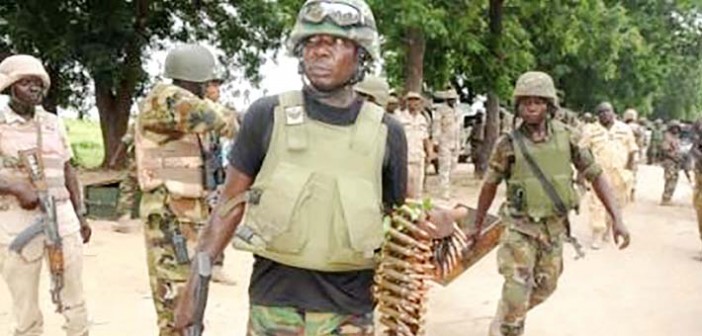
DAYS after an early morning bomb attack on a mosque in Mubi, the bewildered Adamawa State community has yet to overcome its grief. The Boko Haram attack was primed for maximum impact. As worshippers trooped into the mosque for the dawn – fajr – prayer, the young suicide bomber, whom the police estimated to be 17, detonated his Improvised Explosive Device vest. The devastating explosion claimed 50 lives, and left scores injured. In the aftermath, residents started fleeing, uncertain of what would happen next. This was a deeply touching horror. Despite the brief lull in attacks, it showed that Boko Haram is entrenched and still boasts sympathisers within the local communities in the North-East.
Unfortunately, Mubi has always been vulnerable to the Islamists. In June 2014, the extremists set off a bomb as fans left a football field in Kabang, killing 40 people and injuring 19 others. A survivor said, “After the commotion, I stood up covered with my own blood, but I realised that I was lucky to be injured as those who were not that lucky were shattered into pieces.” Before this, Mubi suffered devastation when Boko Haram gunmen stormed a town hall, where Igbo Christians had gathered for a meeting in 2012. They slaughtered 20 people.
For the past eight years, Boko Haram has been waging a religious war against the Nigerian state. At the height of its madness, it annexed 27 local government areas in three states, abducted 276 schoolgirls at Government Girls Secondary School, Chibok, in Borno State in April 2014 and declared a caliphate, using the Sambisa Forest as its base.
Led by Abubakar Shekau, Boko Haram has slaughtered over 20,000 Nigerians, particularly in the North-East states of Adamawa, Borno and Yobe. The United Nations says “1.9 million were internally-displaced as of June 2017” through the sect’s activities. The global body says Boko Haram attacks have caused 200,000 Nigerians to flee to Cameroon, Chad and Niger Republic.
To be fair, the Muhammadu Buhari administration, on assuming power in May 2015, vowed to degrade the extremists. It succeeded initially. Nigerian troops recaptured the 27 LGAs from Boko Haram and partially flushed the insurgents from the Sambisa Forest. In December 2016, President Buhari proclaimed that Boko Haram had been defeated technically. But this proved to be a hasty political statement. It was a rather poor reading of Islamist terrorism.
Across the world, jihadists retreat and live to fight another day. Although Iran has just declared the end of the Islamic State of Iraq and Syria, coming shortly after Syria and United States-backed forces defeated ISIS in Syria in October, the imprints of ISIS are still visible in the Middle East, Pakistan, Afghanistan and other Asian countries with large Muslim populations. On November 24, Egypt witnessed horrendous bloodshed. The terrorists set off a bomb, gunned down 305 people and injured 128 others during Jumu’ah prayers at a mosque near al-Arish, in restive Sinai.
So, how do you stop the extremists? Having suffered numerous attacks in the hands of Palestinian and Hezbollah terrorists, Israeli security forces place a premium on intelligence gathering and sharing among each other. They say a suicide bomber must be stopped at the point of assembling IEDs, pointing out that if he has taken off, nothing could be done again. Although the United Kingdom has witnessed five terror attacks this year, Sadiq Khan, the Mayor of London, said in September that the British security forces had foiled seven other attacks. A September British Home Office report stated that 19 terrorist plots were foiled in the UK by police and the intelligence community since June 2013. This is intelligence at work.
In Nigeria, the police are nowhere to be found, while the main internal security agency, the State Security Service, is busy waging a turf war with the Economic and Financial Crimes Commission. The military, which are saddled with all the spadework, cannot put boots in every village. Buhari has to reinvent the war on terrorism by directing the SSS to do its primary work of intelligence gathering. The information gathered should be channelled through a joint coordination centre. This will help the police and military move against the terrorists at their operational bases before they do harm.
However, Nigeria needs help from other nations in combating this asymmetric warfare. Israel, France, the UK and the US are ready to help. Buhari should encourage them to establish counter-insurgency bases in the North-East, as the US has done in Niger Republic. A key strategic action used by the US is to constantly hunt down the hierarchy of the terrorist groups. Al-Qaeda top guns, Osama bin Laden and Anwar al-Awlaki, were taken out in 2011. The Chief of Army Staff, Tukur Buratai, who issued a 42-day ultimatum for Abubakar Shekau, the Boko Haram leader, to be captured, has to actualise this tactical leap to weaken the terrorists’ momentum.
To fully degrade Boko Haram, its source of funding has to be closed up and the sponsors brought to book. Furthermore, its source of acquiring weapons has to be blocked. The Buhari government should reconsider its wrong-headed policy of reintegrating terrorists. Therefore, all those arrested in connection with terror attacks have to be promptly prosecuted.
Islamist terrorism is a battle of the mind. Potential terrorists are swayed through false indoctrination: Islamists teach the false utopia that they kill to advance their religion. To disabuse their mind on this warped teaching, Morocco, an Islamic nation, has prescribed a code of conduct for Islamic preachers. Any violation is met with stiff sanctions. Nigeria should embrace such control mechanism.
END

Be the first to comment